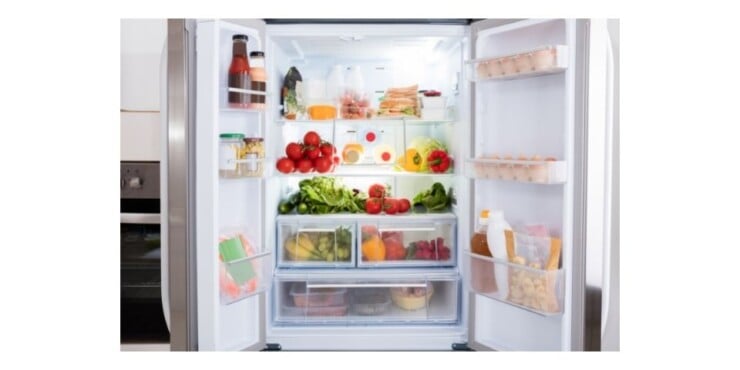Many people ask this common question, but the answer is often misunderstood. Below you will find all the information you need to know about whether botulism can grow in a refrigerator, as well as other essential details about botulism.
In short, No, botulism cannot grow in your refrigerator. The botulinum bacteria will not grow in a refrigerator as they cannot grow in temperatures below 12°Cs. However, if an open can containing food with botulism is refrigerated, the bacteria will thrive and reproduce.
Botulism has been studied as one of the deadliest types of food poisoning. This is because it goes after the nerves in the body to put a strain on breathing, causing muscle paralysis, and in worst cases, leading to death.
We know some bacteria and microorganisms can harm us, and we do our best to put them away to avoid their damage. An example of these bacteria includes botulism
What you should know about Botulism Bacteria
Botulism is not a very common wellbeing problem, but toxins from the Clostridium botulinum bacteria give rise to it. The infection presents itself in three common ways that directly affect us, which are:
1. Foodborne botulism
2. Infant botulism
3. Wound botulism Whether botulism is detected among the three listed above, it remains a critical health situation and commands immediate medical attention.
Going by the research made by the CDC, factors like low oxygen, salt, sugar, and a specific temperature provides a thriving environment for botulinum toxin spores to grow and become actual toxins. Other conditions that allow botulinum toxin to grow include fermented, home-canned, or not well-preserved foods.
How Long Does Botulism Take to Grow in Food?
In the right conditions, the botulinum toxin which causes botulism can grow into lethal toxins within half to two and half days. However, various medical assertions postulate that the toxins can become fully formed in four hours or may take up to eight days before they are created.
How Long Does It Take For Botulism To Grow In Canned Food?
It will take botulism about 3 to 4 days to grow and become fully lethal in canned food. When botulism is forming in canned food, one will notice the container becoming bulgy and swollen. When opened, the container may spurt foam or any liquid substance, or the food in the canned container is discolored and smelly.
Canned foods are often the breeding ground for botulinum toxin, and we must be wary of their consumption. Ensure the food in the canned container is still intact and does not produce any of the substances I highlighted above, and you should not encounter any challenge.
Can Botulism Grow In Plastic Containers?
Botulism can grow on every surface, including plastic containers. It may not necessarily develop on the surface of the plastic container but deep within it. P.S: Do not forget that botulism only requires the right amount of oxygen, temperature, acid, salt, and sugar to develop. If it gets that in a plastic container, even a toilet sink, it will grow unhindered.
Can Botulism Grow In Vinegar?
No. Botulism will never grow in vinegar. This is because botulism only grows in the absence of oxygen and a low concentration of acid. Vinegar contains a concentration of acetic acid, which is detrimental to the formation of botulism. Hence, botulism cannot grow in vinegar.
Final Thoughts
So far, we have seen that Botulism cannot grow in a refrigerator, which provides an excellent strategy to prevent the formation of the bacterium.
To prevent botulism, especially foodborne botulism, I recommend that you make sure all foods are refrigerated. Furthermore, keeping a wound clean is essential to preventing wound botulism, while parents must keep children away from honey as they can cause infant botulism.
Honey is only safe for children above one year. In addition, do not give honey products to infants. They could also contract infant botulism from such products. Enjoyed this article? Please share with your friends and family to spread the information.

